News
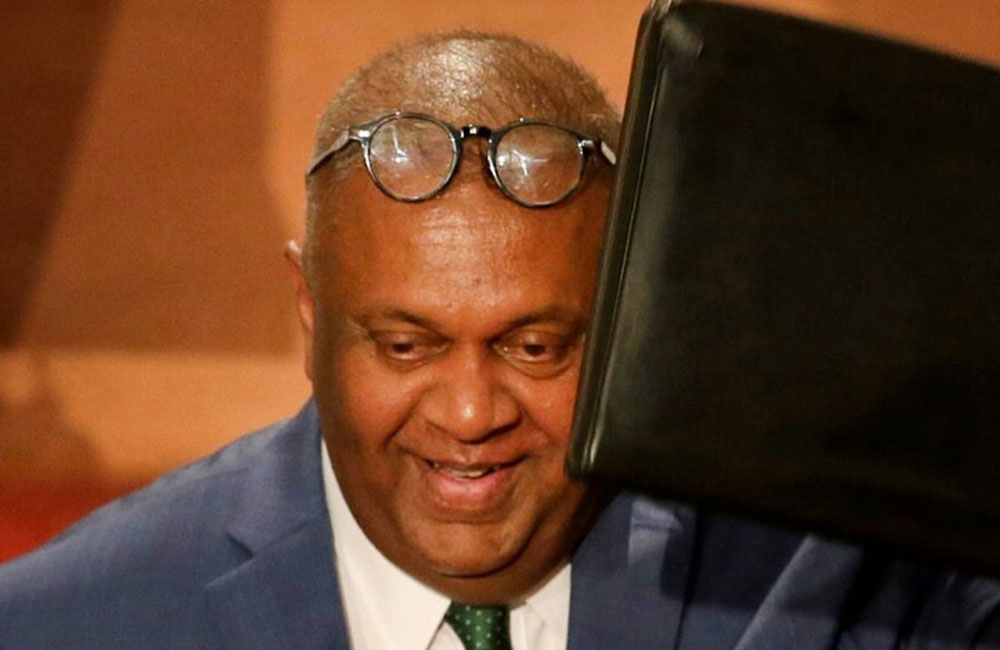
SJB wants Mangala’s tax policy to be implemented
SJB media spokesman S.M. Marikkar has urged the government to implement the tax policy introduced in 2019 by the then finance minister, the late Mangala Samaraweera.
Speaking to the media yesterday (16), Marikkar referred to the strike by trade unions on the previous day against an unfair tax policy, increase in electricity tariffs etc.
The President’s Media Division (PMD) failed in its propaganda war of updates every five minutes on uninterrupted train and bus operations and banks being kept open to claim the strike was a failure.
It completely ignored the sorry plight of the people, he said.
The PMD also finds the Rupee’s appreciation against the US dollar newsworthy, but keeps silent when it started to slide once again, said the SJB MP.
Meanwhile, the FPA’s Dr. Nalaka Godahewa said the taxes imposed in a hurry were unbearable for the public.
On the decline of the rupee again, he said, it will become worse once the IMF deal comes through, and noted a strengthening of the economy was the only option.
While imposing taxes to raise revenue, the government should be sensitive to public issues as well, he advised.
In the meantime, SLPP’s Mahindananda Aluthgamage said everyone should survive for the next six months amid all difficulties, or else the economy would suffer further.
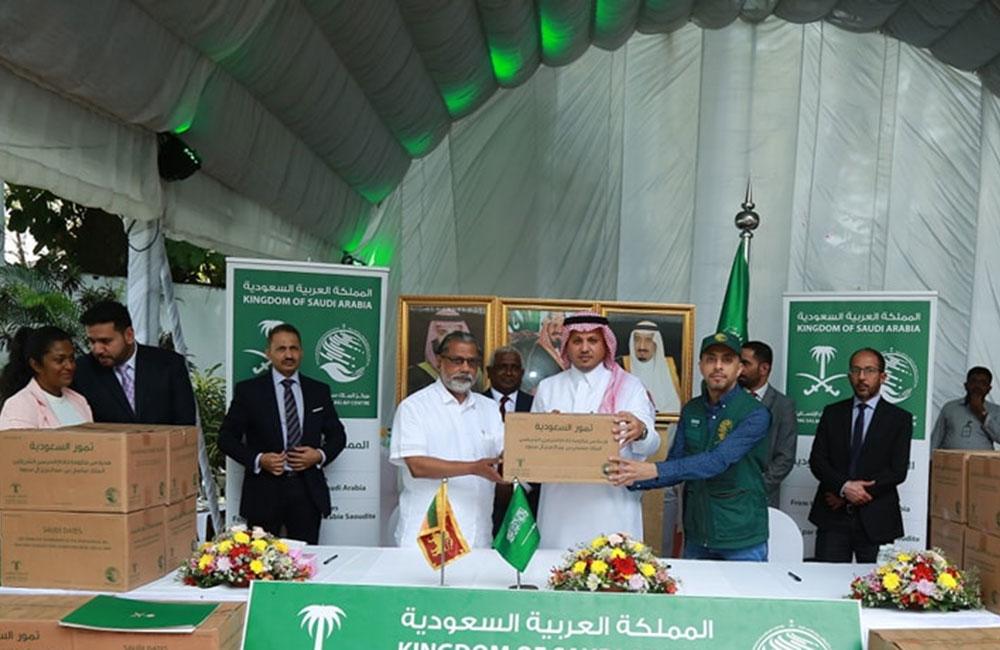
Saudi Arabia donates 50 tons of dates to Sri Lanka
The King Salman Humanitarian Aid and Relief Center of the Kingdom of Saudi Arabia donated 50 tons of dates to the Democratic Socialist Republic of Sri Lanka.
His Excellency Khalid Hamoud Alkahtani, Ambassador of the Kingdom of Saudi Arabia to Sri Lanka, officially handed over this consignment of dates to Hon. Vidura Wickremanayake, Minister of Buddhashasana, Religious and Cultural Affairs, during a ceremony held at the Embassy of the Kingdom of Saudi Arabia in Colombo, on Thursday
His Excellency the Ambassador praised the great humanitarian efforts of the King Salman Humanitarian Aid and Relief Center around the world, which reflect the keenness of the Government of the Custodian of the two Holy Mosques King Salman bin Abdulaziz Al Saud and His Highness the Crown Prince Prime Minister – may almighty God protect them – to stand with brotherly and friendly countries and peoples in various circumstances and tribulations, noting the strong relations between the Kingdom and the friendly Republic of Sri Lanka.
From his side, Hon. Minister of Religious Affairs of Sri Lanka extended his sincere thanks to the Kingdom of Saudi Arabia under the leadership of the Custodian of the two Holy Mosques King Salman bin Abdulaziz Al Saud and His Royal Highness Prince Muhammad bin Salman bin Abdulaziz, Crown Prince and Prime Minister – may Almighty God protect them – for all the assistance provided to the Sri Lankan people, indicating that this is not surprising from the Kingdom’s humanity and its generosity that have provided unlimitedly in all parts of the globe.
This gift comes within the programs offered by the Government of the Custodian of the Two Holy Mosques King Salman bin Abdulaziz Al Saud and His Highness the Crown Prince – may almighty God protect them – to a number of brotherly and friendly countries, with a view to reach the most needy families in different parts of the world. (Saudi Embassy)
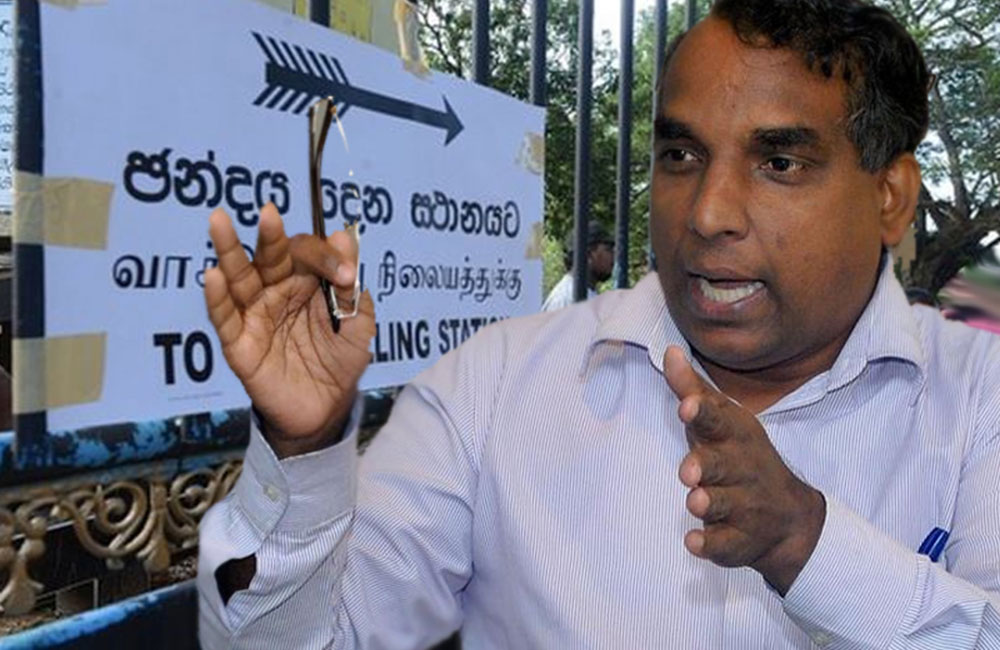
PAFFREL says LG polls unlikely on April 25
Local election monitor People's Action for Fair and Free Elections (PAFFREL) said the prevailing situation does not allow the holding of the local government polls on April 25.
Its executive director Rohana Hettiarachchi also noted the government was ignoring the court ruling on the election, while its MPs hid behind parliamentary privileges and criticized the verdict.
The decisive factor here is whether the government recognizes the people’s democratic rights by holding elections on time, said Hettiarachchi.
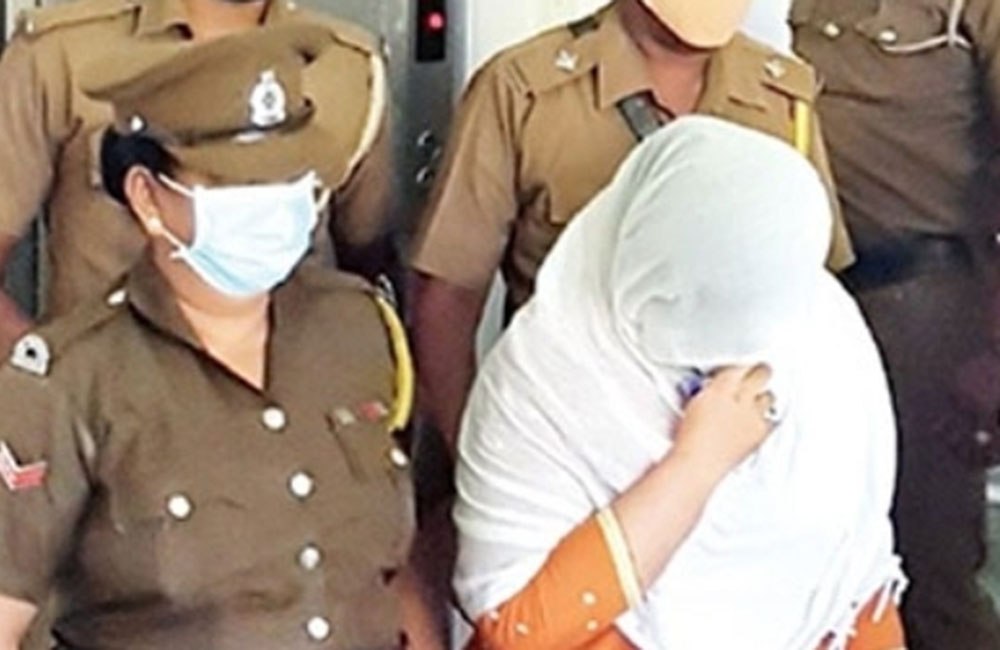
Zahran’s wife granted bail after four years
Fathima Hadiya, wife of Easter Sunday attack mastermind Zahran Hashim, has been released on conditional bail bu Kalmunai High Court.
Abdul Cader Fathima Hadiya has been released after being in remand custody for a period of four years since the 2019 Easter Sunday attacks.
Hadiya was arrested after the blast that took place in Saindamarudu days after the Easter Sunday terror attacks in April 2019.
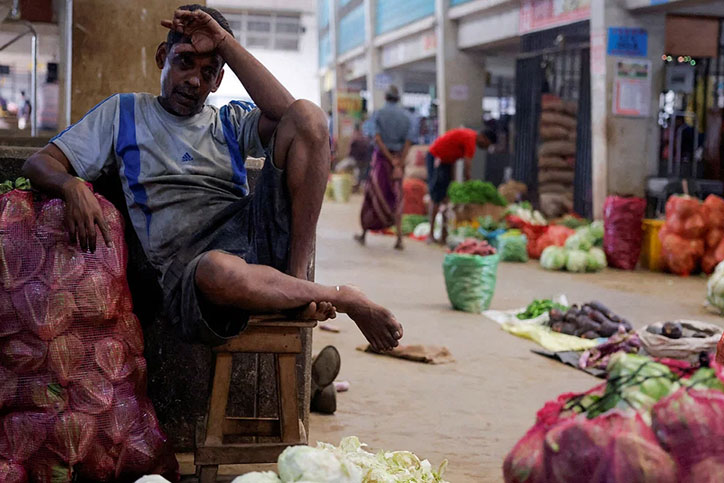
Sri Lanka's economy contracted 7.8% in 2022
Sri Lanka's economy shrank 7.8% in 2022 from the previous year, government data showed on Wednesday, as the country struggled with its worst financial crisis in more than seven decades.
The island's fourth-quarter GDP contracted 12.4%, according to the figures.
Sri Lanka's growth is expected to shrink by 3% this year, Moody's Investors Service said on Monday but growth is expected to rebound in 2024.
Economic mismanagement coupled with the impact of the COVID-19 pandemic left Sri Lanka severely short of dollars for essential imports at the start of last year tipping the country into the worst financial crisis since Independence from the British in 1948.
Sri Lanka is waiting for a $2.9 billion bailout program from the International Monetary Fund (IMF) to be finalised on March 20.
“These numbers are broadly in line with expectations. In the last three months of 2022 Sri Lanka was hit by very high inflation, fuel shortages and high interest rates,” said Sanjeewa Fernando, Senior Vice President Research at Asia Securities.
“For the rest of this year, with IMF funds expected, the central bank should be able to keep the currency strengthened, eventually reduce interest rates, and continue to see inflation ease."
The state-run Census and Statistics Department said that the agriculture sector shrank 4.6%, while industries contracted 16%, and services dropped 2%, from a year earlier.
Sri Lanka's economy shrank 11.8% in the July-September quarter from a year ago, the second-worst quarterly contraction ever for the country.
Sri Lanka aims to announce a debt-restructuring strategy in April and step up talks with commercial creditors ahead of an IMF review of a bailout package in six months, its central bank governor told Reuters last Thursday.
Source: Reuters
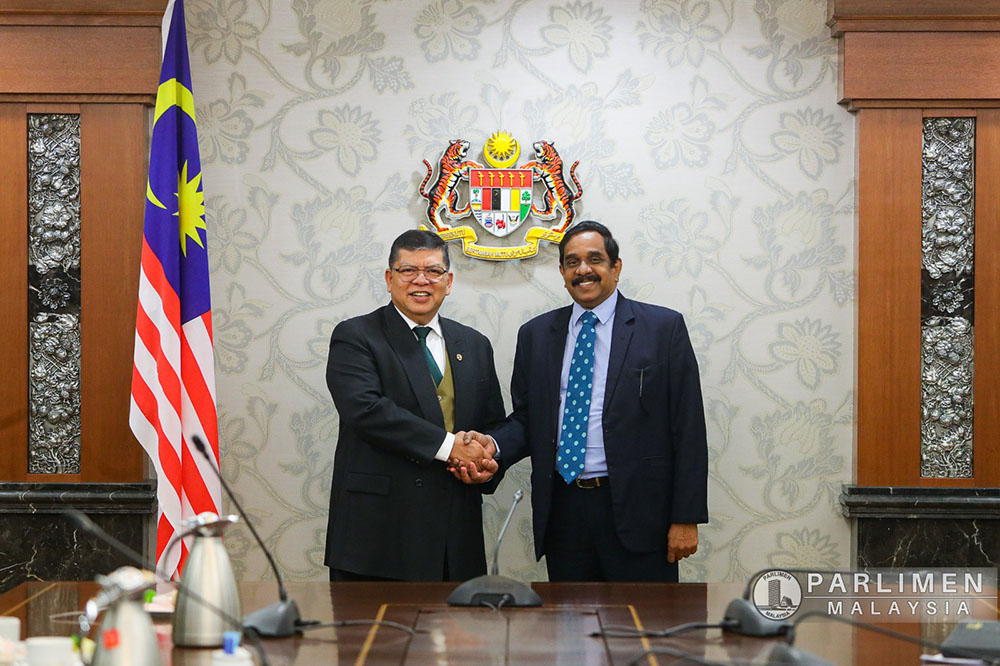
Malaysia agrees to provide jobs for 100,000 Sri Lankans
The Malaysian government has agreed to provide employment for around 100,000 Sri Lankans, said foreign employment promotion state minister Jagath Pushpakumara.
The state minister was in Malaysia at the invitation of the home affairs minister of that country Saifudeen Ismail last week.
During the talks, minister Ismail has promised to grant opportunities to Sri Lanka as well on security services which are given exclusively to Nepal at present.
Pushpakumara said he also had discussions with Malaysian parliament speaker Johari Bin Abdul on bilateral economic partnership and foreign employment matters.
Job opportunities for Sri Lankans also came up during his talks with human resources minister Tuan Sivakumar.
Sri Lankan high commissioner Sumangala Dias also participated in these talks.
https://english.newstube.lk/news?sa=U&start=3096#sigProIdd1728662ff
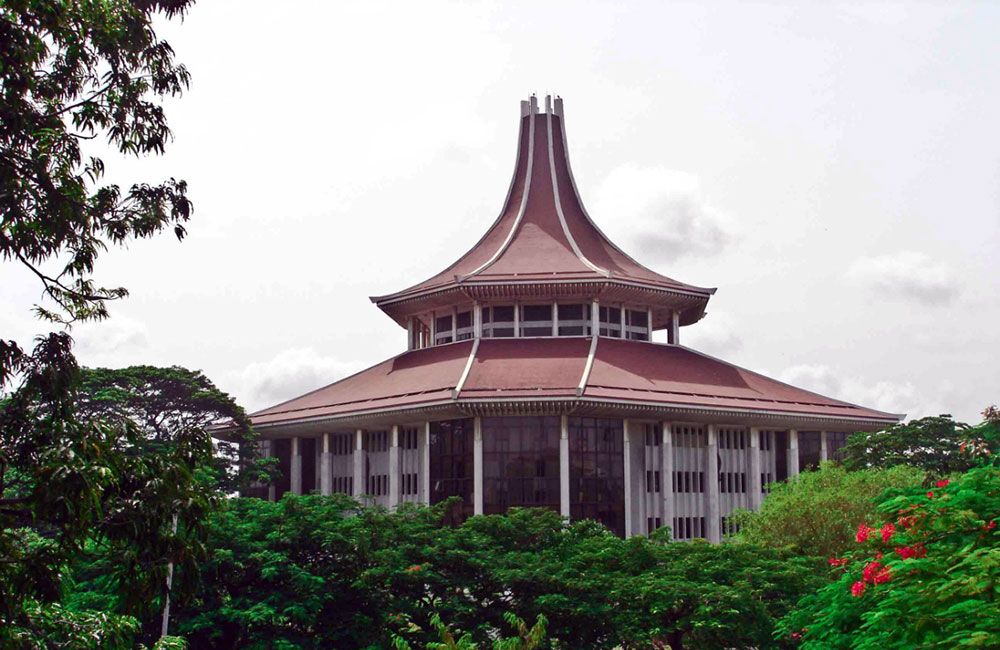
SC interim order prevents holding LG polls for Kalutara Pradeshiya Sabha
The Supreme Court today (March 16) issued an interim order preventing the Local Government Election for the Kalutara Pradeshiya Sabha from being held.
A three-member Supreme Court bench delivered the interim order, granting leave to proceed with a petition challenging a Returning Officer’s move to reject a nomination paper submitted by the New Lanka Freedom Party (NLFP). Justices Preethi Padman Surasena, Gamini Amarasekara and Janak de Silva sat for the hearing.
Representing NLFP’s secretary W.K.T. Waragoda, Attorney-at-Law Viran Corea said the nomination paper had been rejected by the respective Returning Officer as one of the affidavits submitted along with it did not contain the official seal of the Justice of Peace.
Explaining that the other affidavits submitted with the nomination contained the relevant official seal, the lawyer noted that the Returning Officer’s move to reject the nomination paper is against the law.
Taking the presented submissions into consideration, the judge bench granted leave to proceed with the petition hearing.
Thereby, fixing the petition hearing for May 12, the judge bench also issued an interim order preventing the LG election for the Kalutara Pradeshiya Sabha from being held until the conclusion of the legal matter.
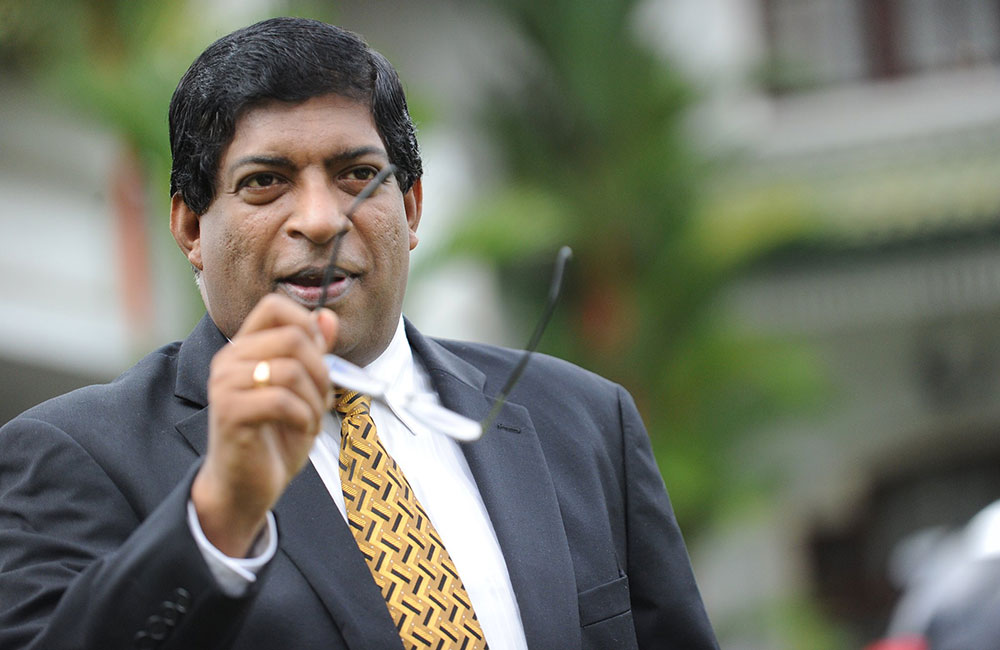
Case against Ravi K. cannot proceed; High Court orders AG to decide
The Colombo High Court today (15) ordered the attorney general to decide the course of action against former finance minister Ravi Karunanayake with regard to the Central Bank bond issue.
A HC panel comprising judges Damith Totawatte, Manjula Tilakaratne and Mohamed Irshadeen instructed the AG to inform the court of his decision at the next hearing on April 27.
Panel chairman Totawatte noted the charges against Karunanayake cannot proceed in view of a previous ruling by the Court of Appeal, which was brought to the court’s notice by Karunanayake’s lawyer Shavindra Fernando.
President’s counsel Fernando submitted a copy of the appellate court’s verdict, which was examined by judges Totawatte and Tilakaratne, with both deciding the matter was up to the AG to decide.
Additional solicitor general Priyantha Nawana, who represents the AG, told the court that no decision has been taken yet to appeal that ruling.
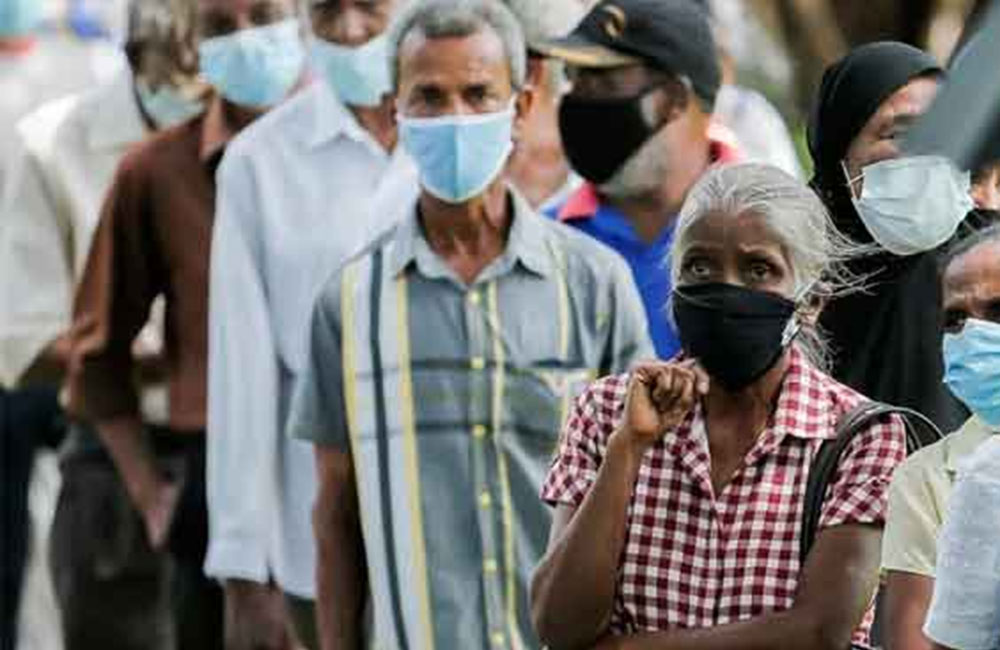
1.1 million welfare benefits applications verified
The information of nearly 1.1 million applications for welfare benefits out of 3.7 million has been verified as of now, State Minister of Finance Shehan Semasinghe said.
According to the President’s Media Division (PMD), the applications from 334 Divisional Secretariats have been verified through an ongoing information survey.
The State Minister further said that the said information survey will conclude on 31 March 2023.
Emphasizing the need for accurate information, State Minister Semasinghe warned that the failure to submit the necessary information by the deadline will result in the loss of welfare benefits.
In October 2022, the Government launched the restructured welfare benefits programme for vulnerable persons/families targeting 3.1 million beneficiaries.
Vulnerable persons/families were informed to register for the new welfare benefits programme via applications from the following website – wbb.gov.lk
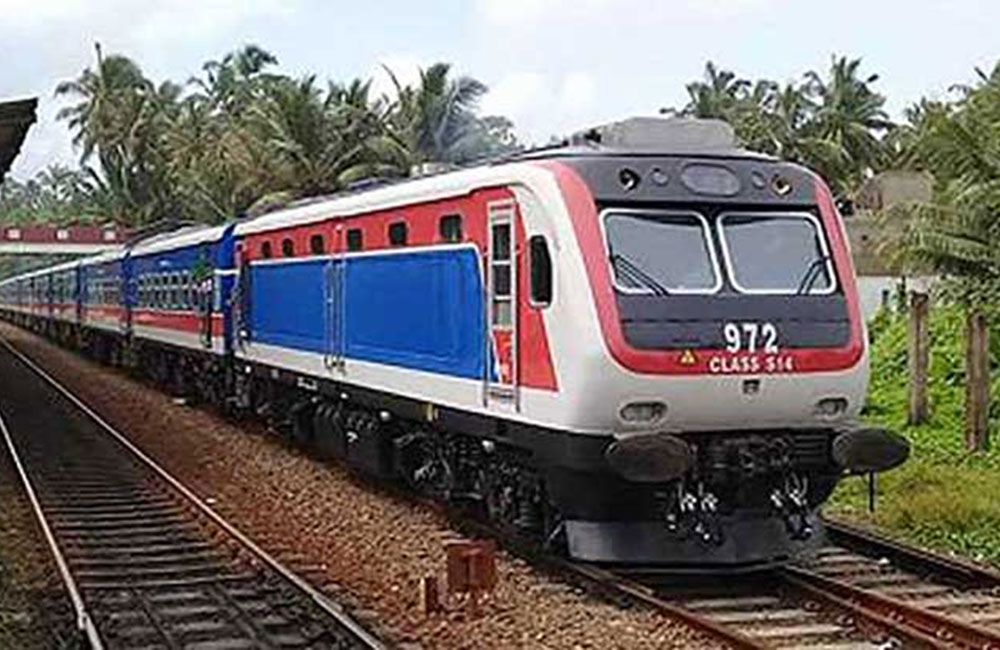
NO leave for railways workers
Leave of all employees of Sri Lanka Railways cancelled with immediate effect, said the Superintendent of Sri Lanka Railway on Tuesday (14) afternoon.
The announcement came after the Locomotive Operating Engineers' Association of Sri Lanka Railways declared a 24-hour strike.
The strike will come into effect at midnight on Tuesday (14).
The Locomotive Operating Engineers' Association decided to go on strike in support of the mass strike that will launched by multiple trade unions on Wednesday (15), against the governments unjust tax policy, and several other social issues.
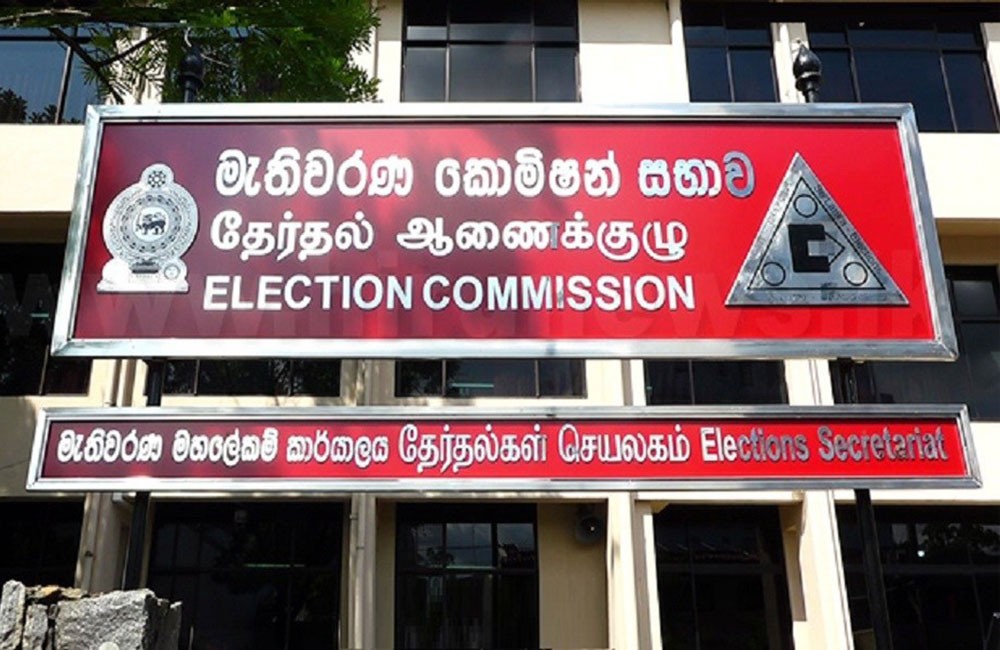
Three decisions by Election Commission
The National Election Commission has taken three decisions pertaining to the Local Government elections.
The Commission has announced a 14-day grace period starting today, 16th March 2023, for all registered political parties to submit statements on their audited accounts for the year 2021.
The political parties that fail to submit the relevant statements by the end of the grace period will be removed from the list of registered political parties, the commission stated.
The National Election Commission has also decided to hold a discussion at 10.00 am on 23rd March 2023 with the secretaries of registered political parties contesting the 2023 Local Government polls.
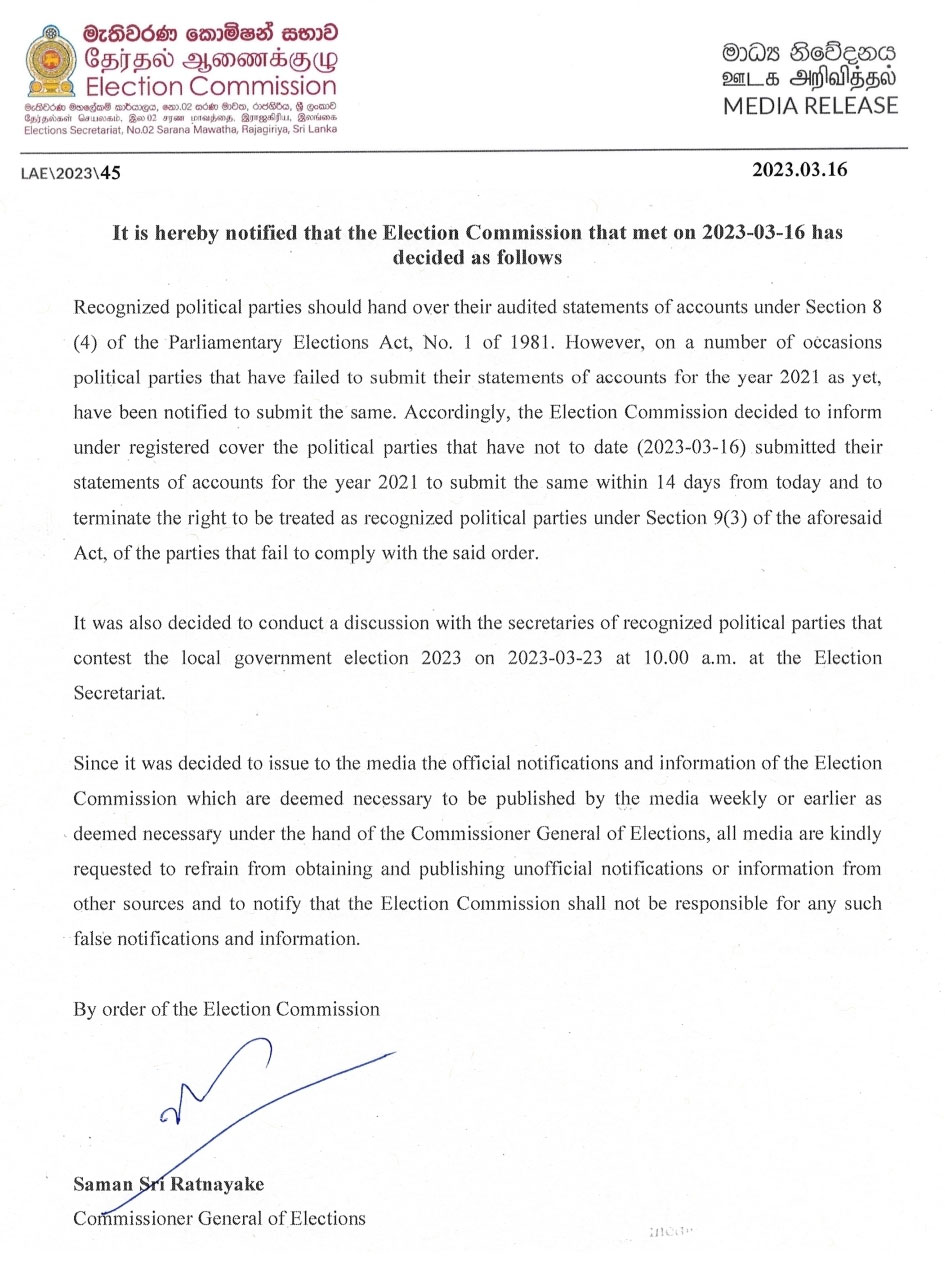

Election Commission sends written request to Finance Minister on funds for polls
The Election Commission of Sri Lanka has made a written request to the Minister of Finance that the funds required to hold the 2023 Local Government (LG) election be released.
Accordingly, the relevant request was sent to President Ranil Wickremesinghe in his capacity as the Minister of Finance, Economic Stabilization and National Policies, Chairman of the Election Commission Attorney-at-Law Nimal G Punchihewa confirmed.
This move comes shortly after the Commission was informed by the Secretary to the Ministry of Finance that no direct decisions pertaining to the release of funds can be made without the approval of the Minister.
Meanwhile, the Secretary to the Ministry also informed the Commission yesterday (11 March) that their request pertaining to the funds has been forwarded to the Finance Minister.
However, the Government Printer Gangani Liyanage has claimed that the Department of Government Printing is unable to commence the printing of ballot papers for the upcoming election, as they are yet to receive the required funds.
Thus, she noted that they are unable to hand over the postal ballot papers to the relevant post offices before 20 March owing to the current situation.
Page 259 of 660
